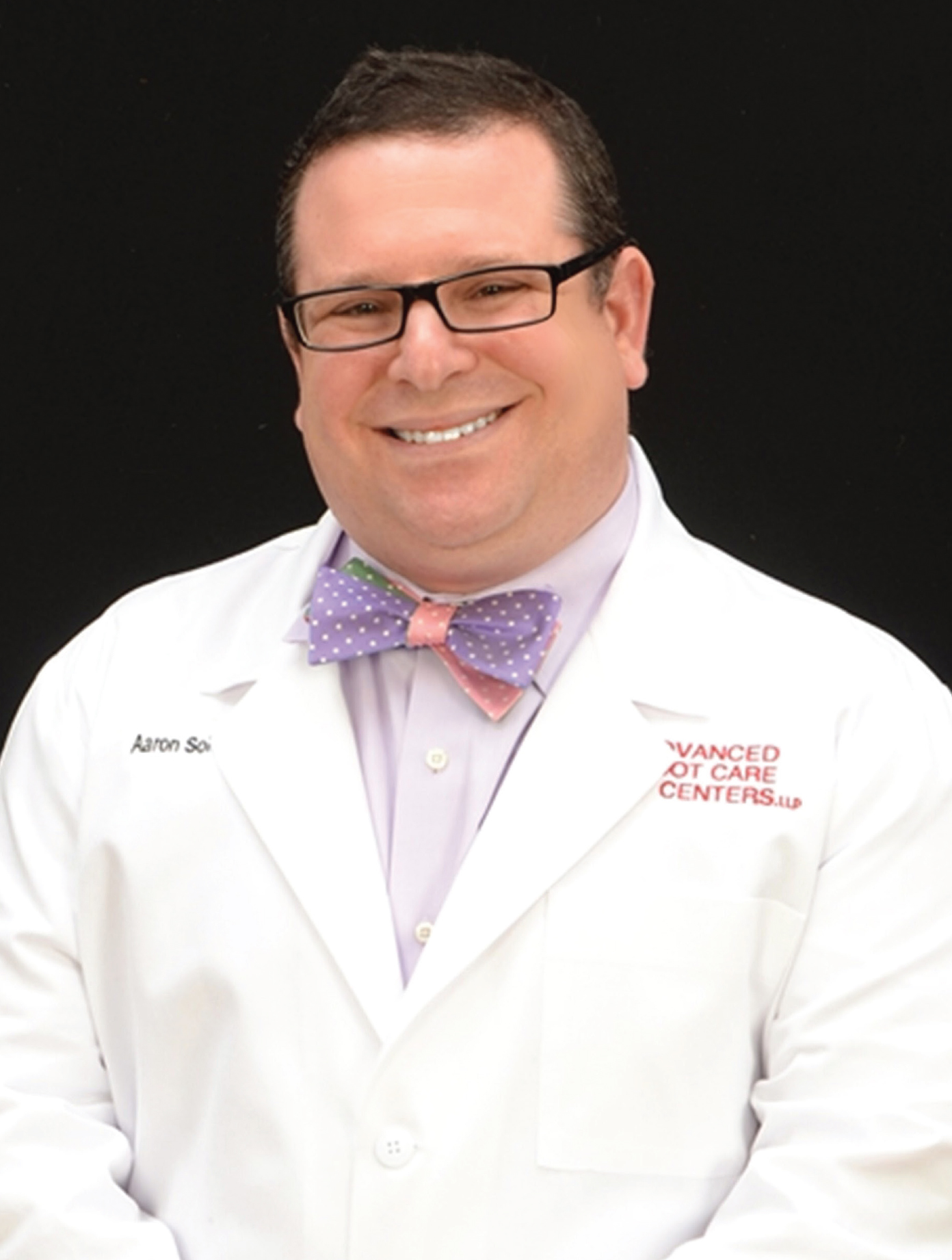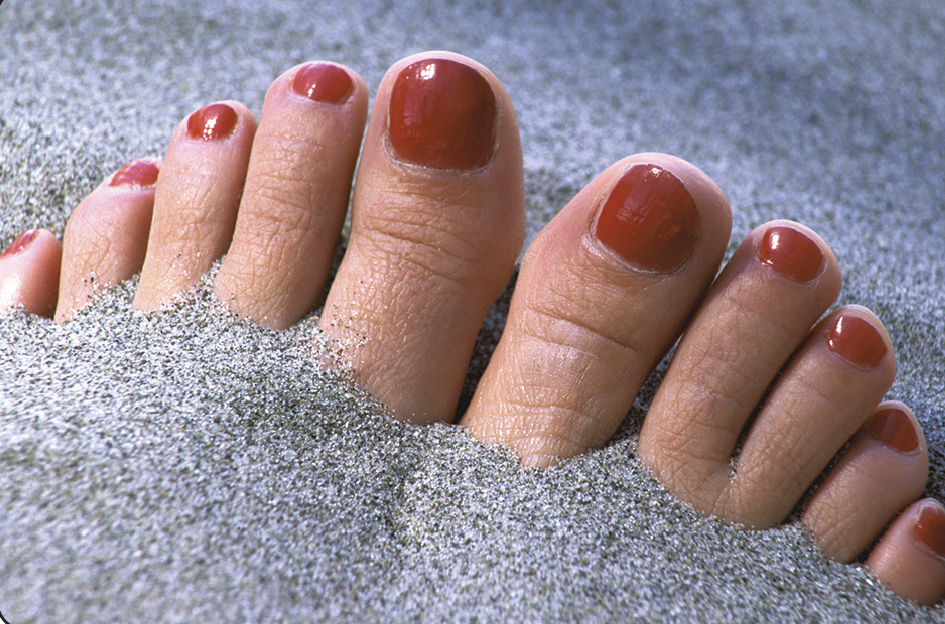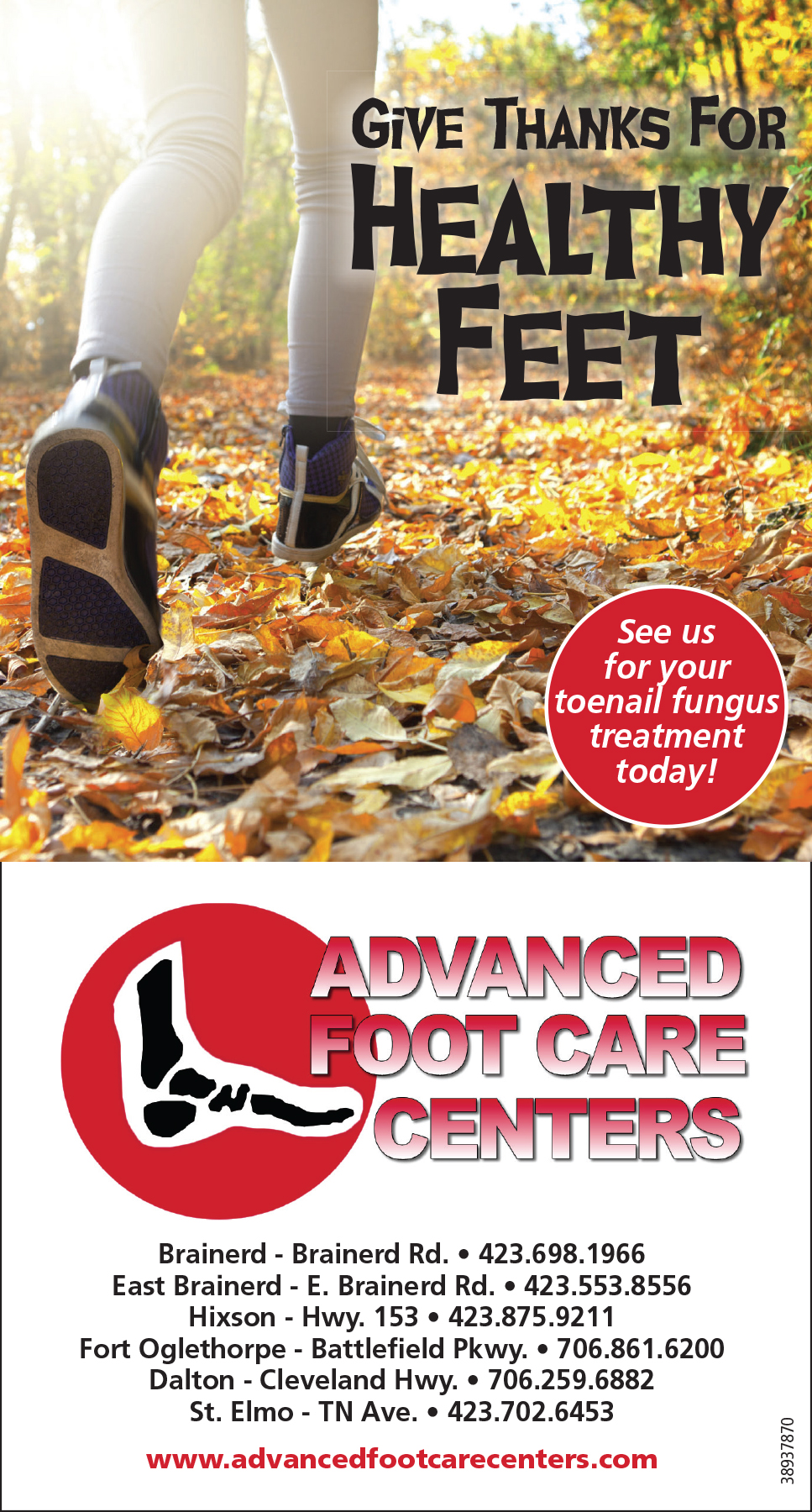While people may view ingrown toenails as a big embarrassment, they are actually among the most common -- if not the most common -- ailments the professionals at Advanced Foot Care help treat.
"There are so many causes, and it's not that someone did anything wrong when they get an ingrown toenail," said Advanced Foot Care's Dr. Aaron Solomon. "We treat them all the time, and it's a very simple procedure."
Solomon said that causes range from high levels of activity and wearing ill-fitted shoes to toenail shapes and structural deformities.
"Improper grooming is also a common cause, when people are too aggressive with cutting their toenails," he said.
Symptoms are very straightforward and include redness, swelling, pain and discomfort along the side of the toe. Drainage can also occur, depending on the severity and the swelling along the fold or border of the toenail, Solomon saod.
"The best cure is to remove the offending piece of toenail through a simple in-office procedure," Solomon explained. "It's an instant gratification in that as soon as the ingrown portion is out, patients' symptoms immediately start to alleviate and they get relief."
Podiatrists at Advanced Foot Care use a local anesthetic on the toe and remove only the portion that is ingrown, then apply an antibiotic to the site to help prevent any recurring growth in the area. Solomon said the procedure is very effective, with a 90-percent success rate.
Avoidance is also key to help patients fight this issue. Be sure toenails are not being cut too short, and while it is fine to use an emery board to smooth the corners of the nail, they should not be cut, as small particles can be left behind in the bed and stimulate growth or cause irritation, Solomon said.
"Wearing the right shoes that fit correctly is also important, and when you go out for a manicure or a pedicure, be sure you are visiting a reputable salon that cleans and sterilizes properly and is not too aggressive in their cutting," he added.
Patients who find they have chronic ingrown toenails or get recurring growth or symptoms need to be sure they are seen right away, as something more serious could be going on. Fungal infections or serious injury could be at play, or worse.
"It's definitely the exception and not the norm, but some medical conditions can mimic ingrown toenails," Solomon said. "Certain types of cancer or other more serious structural issues can be the cause, and that doesn't need to get overlooked."
He added that, depending on the severity of the condition, the whole toenail sometimes needs to be removed, but that is extremely rare.
"People come in and are often very nervous about what they've heard about the [ingrown toenail removal] procedure from other sources, but then they are pleasantly surprised by how easy and painless it is," he said. "Once it's done, as long as you are comfortable, you can go back to wearing normal shoes and resuming all your regular activities."
Care after the procedure generally involves the application of antibiotic ointment and dressing the toe a few times a day, and the possible use of warm water and Epsom salt. Solomon said some drainage after removal is normal, but patients should see immediate improvement and their symptoms begin to fade.
Noteworthy:
"The best cure is to remove the offending piece of toenail through a simple in-office procedure," said Advanced Foot Care's Dr. Aaron Solomon of ingrown toenails. "It's an instant gratification in that as soon as the ingrown portion is out, patients' symptoms immediately start to alleviate and they get relief."
MORE INFORMATION
Advanced Foot Care has offices in Tennessee at 4308 Brainerd Road; 7550 East Brainerd Road; 5617 Highway 153, Suite 102; and 3742 Tennessee Ave. in St. Elmo. Georgia locations are at 2368 Battlefield Parkway and 1716 Cleveland Highway, Suite 104, in Dalton. For more information about its services, or to schedule an appointment, visit advancedfootcarecenters.com.


